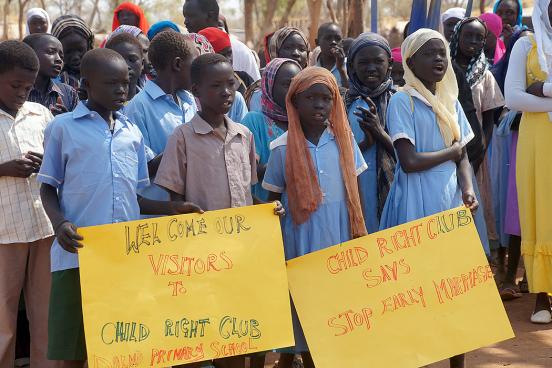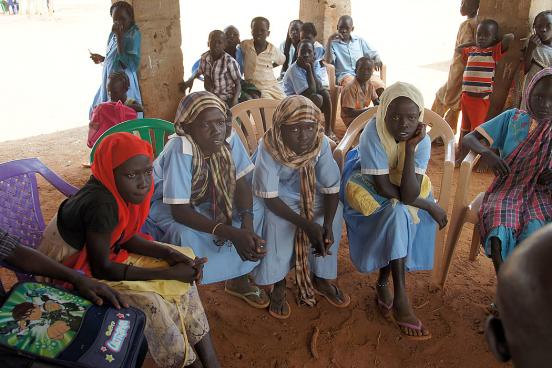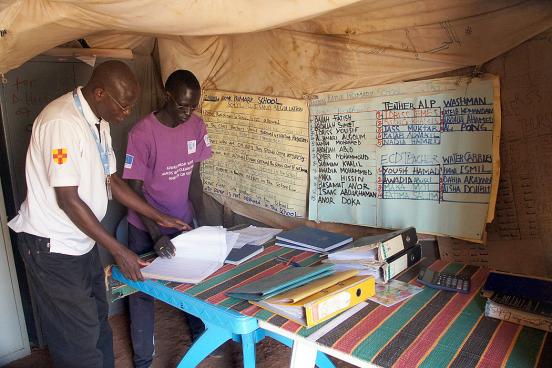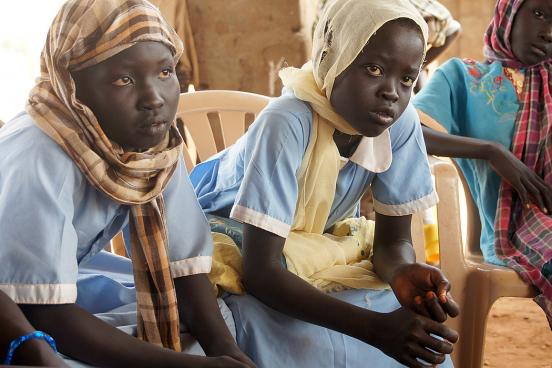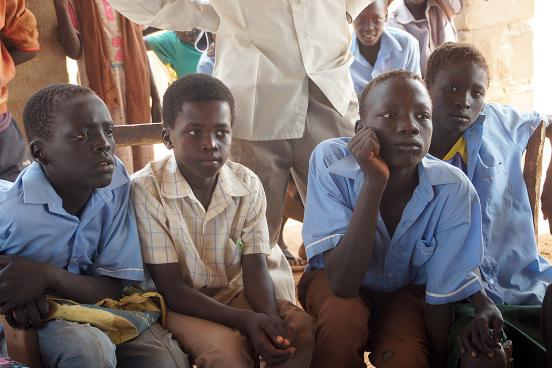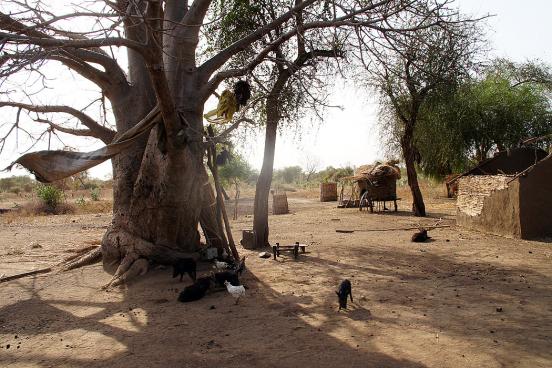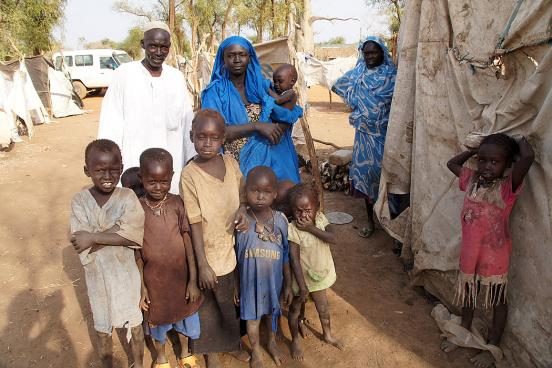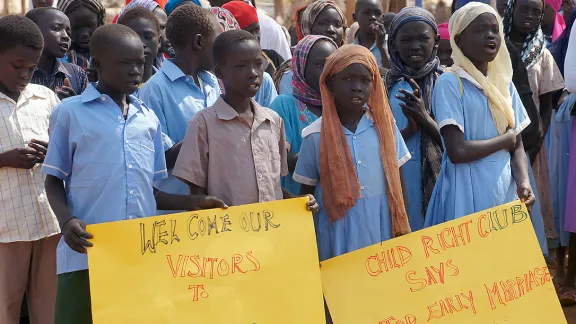
Child rights club in Kaya refugee camp, South Sudan. Photo: LWF/ C. Kästner
Mechanisms to Safeguard the Most Vulnerable
(LWI) – “Be very careful with the pigs,” is one of the first things aid workers learn when arriving in Maban County, South Sudan. The animals are frequently found wandering in the middle of the red dusty road which connects the four refugee camps Gendrassa, Yusuf Batil, Doro and Kaya and the host communities that lie in between.
Although the animals roam about freely and don’t seem to belong anywhere, accidentally knocking even a small piglet can easily cost hundreds of US dollars: The animals are the local currency for bride prices in the Mabanese host communities, visible proof of a network of long-standing arrangements, family ties and the power of local communities which pose one of the biggest child protection challenges in the region.
“Early marriage is very common here,” Julius Tiboa, Lutheran World Federation (LWF) Child Protection Coordinator and interim team leader in Maban, says. “It’s a complex problem which has to be handled with great sensitivity.” The situation in host communities and refugee camps in Maban was one of the local contexts discussed in a workshop on child protection in Kampala, Uganda.
Challenge to Implement the Law
21 participants, almost all from LWF Country Programs in Africa, discussed local child protection issues from 3-6 March 2015. The workshop, organized by the LWF’s Department for World Service, was supported by the Australian Lutheran World Service, the overseas aid and resettlement agency of the Lutheran Church of Australia, and by the Australian Government. The workshop was facilitated by Keeping Children Safe, a network of organizations working on child protection. Founded in 2001, the network consists of regional aid agencies, including the LWF.
Key objectives of the workshop were to develop awareness on and to increase participants’ understanding of international standards for child safeguarding and protection, and how to apply them in local contexts. The workshop introduced the LWF child protection policy and complaint mechanisms and taught participants how to assess risks to children and how to develop capacities to address those risks.
Legally, the child rights act in South Sudan protects children from being married before they have reached adulthood at 18 years. Practically, there is little power to enforce that law, Tiboa says: “We are talking about defilement, which is a criminal case. But how can that be handled in an environment where there is no effective child law enforcement?”
In the Maban context, the team found two main options in dealing with the situation. “First, it is important to report child abuse cases with protection, education and camp management partners and together with them find ways to support the children,” Tiboa says.
The second approach is working closely with the communities. Child rights clubs in the primary schools try to sensitize children and parents alike about the dangers early marriage poses to young girls. School enrollment also gives some protection for boys from being forcefully recruited as child soldiers, a common occurrence in many conflict-stricken countries. The militias usually focus on unaccompanied and unregistered children. Still many families depend on children grazing animals and working in markets for additional income, thereby also denying them a possibility to join the child rights clubs.
Also, measures need to be taken to ensure the safety of children in interaction with aid workers. “The important thing I learned in the workshop was that while child safeguarding is the responsibility of everyone in LWF, managers need to ensure that staff are compliant,” Tiboa concludes.
Child safeguarding does not only protect the children we work with, it also protects the organisation’s staff interacting with children and above all LWF’s reputation. By protecting children, we are instilling trust and confidence in our beneficiaries”.
Working With Traditional Leaders
In Maban, the team works together with the camp’s traditional community leaders, the sheikhs and umdas who are revered by the community and custodians of traditional values. “In the workshop we had a very interesting discussion about the community’s perception of children,” Tiboa says. “In many African communities girls are viewed as a source of family wealth and boys as protectors and continuation of the family lineage“.
Often, the matches are arranged when the girls are infants. The girl’s family then starts receiving dowry payments. When the girls are married at the age of 12 or 13 years, they have little possibility to refuse, Tiboa explains. Additionally, to speaking up against their elders, they would cause financial problems for the family which has accepted animals and food on their behalf for years, and is hardly able to pay them back: “We are challenging traditional values cherished over generations”.
Therefore, child protection also means celebrating the small steps. “In one case, we had a girl in second grade who was supposed to marry,” says Abraham Loyangi Mawa, LWF Child Protection Officer in Gendrassa. “The child rights club organized a rally and went to her parents. They succeeded and brought her back to school”.
